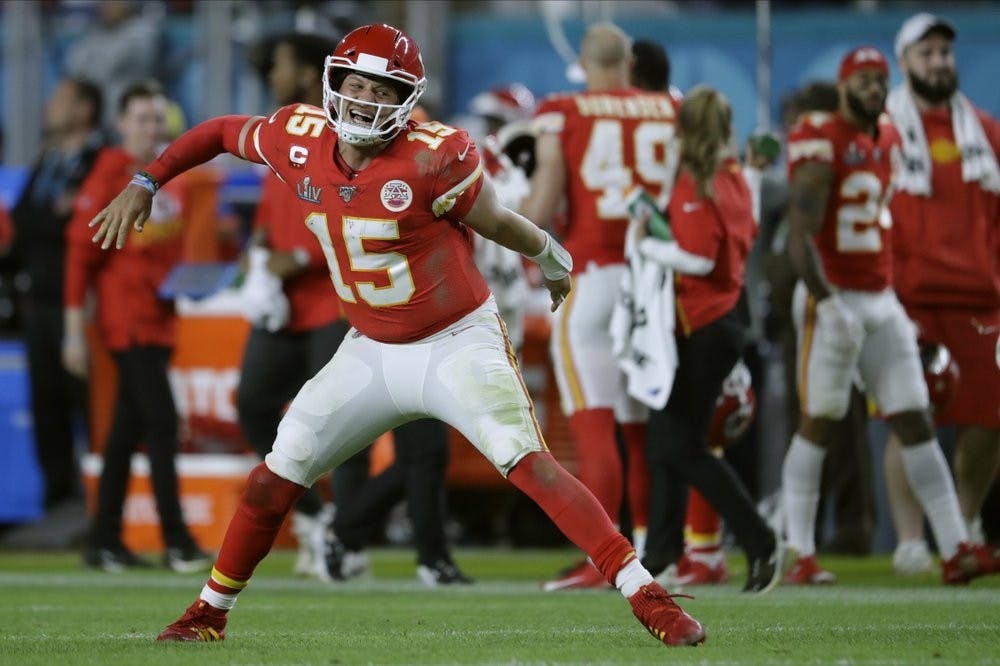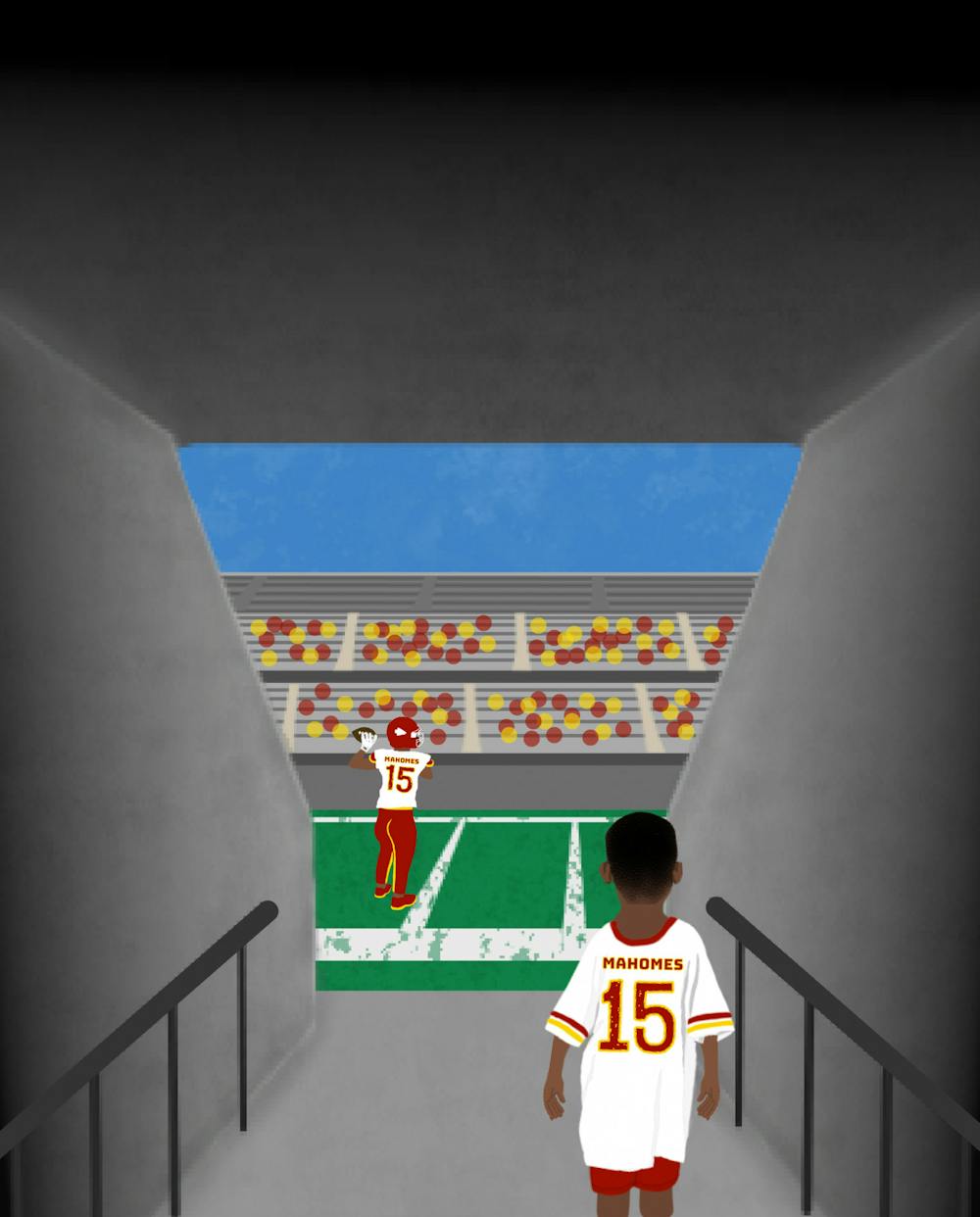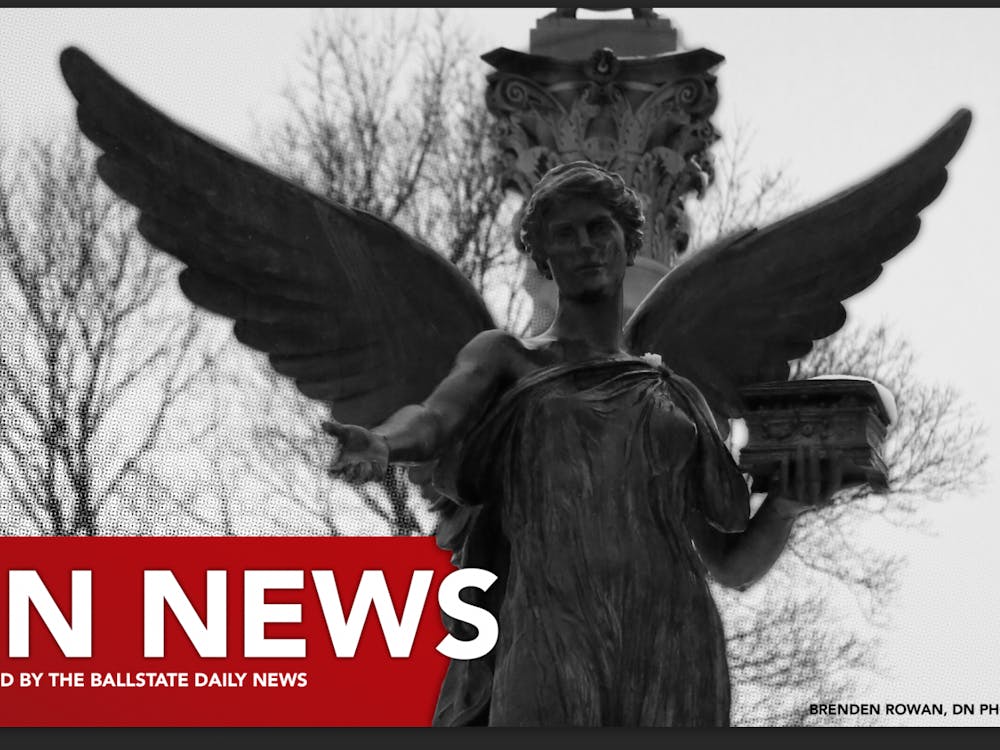2017.
This was the year every active team in the National Football League (NFL) had started at least one Black quarterback in their history after the Giants benched Eli Manning in favor of Geno Smith.
This year's Super Bowl LVII marked the first time both starting quarterbacks were Black, over 100 years after the NFL’s inception, with Jalen Hurts for the Philadelphia Eagles and Patrick Mahomes for the Kansas City Chiefs.
The NFL, founded in 1920, has a history of racism, whether blatant or subtle. Perhaps the most prevalent case has involved Black quarterbacks and the question of whether a Black man was capable of playing the position.
Black quarterbacks have faced racism in the form of stereotypes such as the perception that they lack intelligence, dependability, composure, character or charisma and are unable to be “counted on” to lead their team.
The reason this year's Super Bowl was such a big deal is that ever since the NFL began, Black quarterbacks have been disrespected and told they needed to stop playing the position they worked so hard for their entire athletic life because they couldn’t succeed.
This mindset has spilled from American society and its view that Black people are less likely to succeed and any criticism they take, they can’t fight back against. This adds to the importance of the game because it gives Black people and Black athletes a sense they can make it.
Even when they show their capabilities and skills in the position, NFL owners, general managers and coaches have historically still not taken them seriously, and they almost always intended to convert them out of the position into a different one, such as wide receiver, cornerback or running back.
The first Black starting quarterback in the Super Bowl era, Marlin Briscoe, set multiple records in college at Omaha University, now the University of Nebraska-Omaha, yet the Denver Broncos still wanted to change his position to cornerback. After negotiating his way into keeping the position he loved and trained for, he was placed as the third string.
Following circumstances that catapulted him into the starting position, he threw for 14 touchdowns in only five starts, still a franchise rookie record. However, the Broncos had no intention of keeping him as the starter, so he continued his career as a receiver for different teams.
A similar story happened with Warren Moon. Despite winning MVP of the Rose Bowl in 1977, NFL teams had no interest in taking Moon in the draft, so he instead went to the Canadian Football League (CFL).
Playing with the Edmonton Eskimos for six seasons, Moon threw for 21,228 yards and 144 touchdown passes, and he won the CFL’s Most Outstanding Player award in 1983 after throwing for a league-record 5,648 yards. This put the NFL on notice and thus, a bidding war began.
Moon then embarked on a stellar 16-year career in the NFL, amassing 49,325 passing yards and 291 touchdowns. He is considered the first successful career-long Black quarterback, paving the way for more to come. To this day, Moon is the only Black quarterback to be enshrined in the Pro Football Hall of Fame.
The experience marks yet another problem with the league in regards to Black quarterbacks. Moon, even after a stellar collegiate career, had to go to a different professional league just to prove his worth.
Doug Williams was the very first Black quarterback to not only start in but win a Super Bowl in 1987. He garnered another accolade in his first season in the NFL, becoming the first Black quarterback to be taken in the first round of the NFL draft in 1978. Playing for the Tampa Bay Buccaneers, he had a successful but short stint with the team while suffering through some racism from fans according to his own account.
When Williams asked for a pay raise after earning only $120,000 per year, less than 12 backups’ salaries, Bucs owner Hugh Culverhouse refused to pay him, so he sat out the 1983 season, and the Buccaneers only won two games.

Kansas City Chiefs' quarterback Patrick Mahomes celebrates his touchdown pass to Damien Williams in the the second half of the NFL Super Bowl 54 football game Sunday, Feb. 2, 2020, in Miami Gardens, Fla. (AP Photo/John Bazemore)
After a brief stint in the startup USFL, Williams joined the Washington Commanders, then known as the Redskins. Although he was the backup for most of the 1987 season, starting only two games, he went into the playoffs with the highest passer rating (94.0) on the team and was named the starter. Williams led Washington to win the Super Bowl, becoming the first Black starter and winner at the quarterback position.
Another trailblazer was Randall Cunnigham. Drafted to the Philadelphia Eagles in 1985, he quickly became a fan favorite due to his then-rare scrambling ability. By the 1987 season, he had become the Eagles' permanent starter, and, in 1988, he became the first Black quarterback to start the Pro Bowl.
Due to nagging injuries, Cunningham retired early in 1995. However, he returned to the NFL in 1997 when he joined the Minnesota Vikings. In the 1998 season, Cunningham had the best season of his career, throwing 34 touchdowns and only 10 interceptions. Additionally, he led the league in passer rating (106.0), being the first Black quarterback to accomplish this feat.
Moon, Cunningham and Williams paved the way for more Black quarterbacks to not only be taken more seriously within the football world, but they gave many Black youth a glimpse of hope: from Daunte Culpepper to Vince Young to Steve McNair to Michael Vick to Lamar Jackson.
Although we have come a long way and have seen a Black quarterback named MVP in three of the last five years, Lamar Jackson in 2019 and Patrick Mahomes in 2018 and 2022, the old tendencies are still present.
In the 2018 NFL Draft season, former Colts General Manager Bill Polian appeared on ESPN and had some things to say about Jackson’s abilities, adding to the list of front office members trying to convert a quarterback from their position.
"Clearly, clearly not the thrower that the other guys are. The accuracy isn't there," he said. "I think wide receiver. Exceptional athlete, exceptional ability to make you miss, exceptional acceleration, exceptional instinct with the ball in his hand, and that's rare for wide receivers."
Jackson disregarded this thought and quickly became one of the best and most popular players in the league, winning MVP unanimously after not only setting the quarterback record for rushing yards in a season but leading the league in touchdown passes in only his second season.
Sports media also has a long history of using stereotypes and racism toward Black quarterbacks and athletes, often crediting white players for intellect in comparison to Black players’ athleticism.
In September 2003, the Donovan McNabb-led Eagles were 0-2 following a trip to the NFC championship the previous season.
Instead of criticizing McNabbs’ or the teams’ play, ESPN commentator Rush Limbaugh instead said, "I think what we've had here is a little social concern in the NFL. The media has been very desirous that a Black quarterback do well. There is a little hope invested in McNabb, and he got a lot of credit for the performance of this team that he didn't deserve. The defense carried this team."
This comment was very controversial and was an example of sports media discrediting the accomplishments of Black quarterbacks after a bad play. Despite this, McNabb once again led the Eagles to a third consecutive NFC championship.
That is what is expected of not only Black quarterbacks but Black athletes in general. Take the criticism on the chin, valid or not, and keep playing.
Young Black athletes all over the country watched this game and saw two men who look like them competing at the highest level in the most watched, most anticipated and most talked about sporting event in the United States, and they knew there is a chance for them.
Contact Derran Cobb with comments at derran.cobb@bsu.edu or on Twitter @Derran_cobb.





